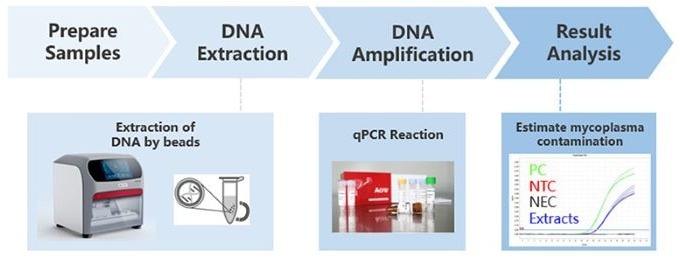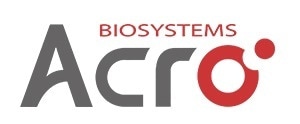Mycoplasma infection acts as an invisible killer in the biopharmaceutical industry, compromising drug safety and patient health on a continuous basis. As the industry progresses, mycoplasma testing methodologies are no longer adequate to satisfy the time constraints of modern drug production.
The introduction of fast-release testing technology has created a new opportunity for the biopharmaceutical industry—one that is both safe and efficient. This technique not only shortens the detection cycle but also effectively protects biologics quality control.
1. Mycoplasma detection: The safety cornerstone of biopharmaceuticals
(1) Hazards of mycoplasma
Mycoplasmas, the smallest self-replicating prokaryotes, can induce aberrant cell development, metabolic disturbance, and even death, putting patients' health at risk.
For example, Mycoplasma pneumoniae infection frequently causes pneumonia with symptoms such as persistent fever, dry cough, and chest pain, which can progress to respiratory distress and consequences.
Mycoplasma contamination in manufacturing might come from raw materials, humans, or the lab environment, and it offers hidden, long-term dangers that must be closely monitored at every stage of the production process.
(2) Limitations of detection methods
Culture-based detection technologies require 28 days to get results, which drastically limits product release pace. While PCR has reduced testing time, it still has the possibility of false positives/negatives and does not entirely match modern drug testing expectations for speed and accuracy.
2. Rapid release testing: An innovative solution for mycoplasma detection
Rapid release testing detects mycoplasma DNA with great sensitivity by using advanced technologies such nucleic acid amplification and fluorescence detection.
This technology reduces testing cycles to mere hours while preserving precision and reliability. It identifies extremely low levels of contamination and provides a solid foundation for quality assessment.
Rapid testing has reduced biologics release timeframes from weeks to days, considerably increasing production efficiency and lowering batch failure risks, resulting in significant cost savings for firms.
In the era of precision medicine, this technology is critical in growing fields like cell and gene therapy. Its ongoing innovation is propelling the biopharma QC framework to new heights, resulting in safer and more effective medications for patients.
3. Accurate workflow: ACROBiosystems supports robust quality control
(1) Sample preparation
Sample preparation is crucial in quick release testing. Optimized lysis buffers and nucleic acid extraction solutions increase DNA recovery while eliminating PCR inhibitors. The use of automated nucleic acid extraction devices is highly recommended since it improves the consistency and reliability of sample processing.
(2) Standardization of detection methods
Standardization guarantees precision. Validated primer-probe combinations and optimized reaction systems reduce inter-batch variability. Real-time qPCR enables real-time monitoring, which improves accuracy and reproducibility.
ACROBiosystems’ Mycoplasma DNA Sample Preparation Kit (Cat. No. OPA-E101) and Mycoplasma Detection Kits (Cat. No. OPA-S102) comply with pharmacopoeial testing criteria in several locations, including China, the United States, and Europe. They are supported by third-party validation reports from Eurofins.
The qPCR detection performance is compatible with culture methods and indicator cell assays, and it covers all strains specified by the pharmacopeias. In addition, human mycoplasma has been specifically validated, providing more complete scientific basis for detection efficacy.

ACROBiosystems offers a comprehensive mycoplasma detection solution. Image Credit: ACROBiosystems
(3) Full-process QC optimization & support
Establishing a quality control system include educating employees, calibrating equipment, and validating reagents. Standard operating procedures (SOPs) and rigorous process control ensure traceability.
ACROBiosystems' technical staff helps with platform setup, process optimization, validation planning, and regulatory submissions, saving time and money with turnkey solutions.
Validation data
Broad coverage: Detects over 250 species of mycoplasma and mollicutes.
Source: ACROBiosystems
| Number of Mollicutes detected with a Database match |
| Genus |
No. |
| Mycoplasma |
>200 |
| Acholeplasma |
14 |
| Spiroplasma |
25 |
| Ureaplasma |
7 |
High sensitivity: Meets regulatory standards (10 CFU/mL).
Source: ACROBiosystems
| ID |
Mycoplasma
Species |
Compendia
requirements (CFU/mL) |
Results |
Limit
(CFU/mL) |
| 1 |
Mycoplasma orale |
10 |
24/24 |
1 |
| 2 |
Mycoplasma pneumoniae |
10 |
24/24 |
0.1 |
| 3 |
Mycoplasma hyorhinis |
10 |
24/24 |
1 |
| 4 |
Mycoplasma salivarium |
10 |
24/24 |
1 |
| 5 |
Mycoplasma fermentans |
10 |
24/24 |
1 |
| 6 |
Mycoplasma synoviae |
10 |
24/24 |
1 |
| 7 |
Mycoplasma gallisepticum |
10 |
24/24 |
1 |
| 8 |
Mycoplasma arginini |
10 |
24/24 |
1 |
| 9 |
Acholeplasma laidlawii |
10 |
24/24 |
0.1 |
| 10 |
Spiroplasma citri |
10 |
24/24 |
0.1 |
Tested 10 mycoplasma standards (10 CFU/mL) in 24 replicates each; all returned positive—meeting/exceeding EP 2.6.7 standards (10 CFU/mL).
High specificity: No cross-reactivity.
Source: ACROBiosystems
| Unrelated strain/Cell line |
Ct Value |
Result |
| Streptococcus pneumoniae |
Undetermined |
Undetermined |
0/2 |
| Lactobacillus acidophilus |
Undetermined |
Undetermined |
0/2 |
| Staphylococcus epidermidis |
Undetermined |
Undetermined |
0/2 |
| Clostridium sporogenes |
Undetermined |
Undetermined |
0/2 |
| Clostridium acetobutylicum |
Undetermined |
Undetermined |
0/2 |
| CHO (106 cells/mL) |
Undetermined |
Undetermined |
0/2 |
| HEK293 (106 cells/mL) |
Undetermined |
Undetermined |
0/2 |
| T cell (107 cells/mL) |
Undetermined |
Undetermined |
0/2 |
| Pichia pastoris |
Undetermined |
Undetermined |
0/2 |
| E.coli |
Undetermined |
Undetermined |
0/2 |
Tested against two cell lines and four unrelated bacteria (e.g., Streptococcus pneumoniae, Lactobacillus acidophilus, Staphylococcus epidermidis, Bacillus subtilis)—all negative, confirming no cross-reactivity.
References
- U.S. Food and Drug Administration. (2019). Elimination of 21 CFR 610.30 Test for Mycoplasma PRIA. (online) U.S. Food and Drug Administration. Available at: https://www.fda.gov/about-fda/economic-impact-analyses-fda-regulations/elimination-21-cfr-61030-test-mycoplasma-proposed-rule-regulatory-impact-analysis (Accessed 9 Sep. 2025).
- Marians, R. C., Brenton, M., LaBombard, S., et al. (2014). Regulatory Aspects of Mycoplasma Testing for Cell Therapy Products. LABS, Inc.
About ACROBiosystems
ACROBiosystems is a cornerstone enterprise of the pharmaceutical and biotechnology industries. Their mission is to help overcome challenges with innovative tools and solutions from discovery to the clinic. They supply life science tools designed to be used in discovery research and scalable to the clinical phase and beyond. By consistently adapting to new regulatory challenges and guidelines, ACROBiosystems delivers solutions, whether it comes through recombinant proteins, antibodies, assay kits, GMP-grade reagents, or custom services. ACROBiosystems empower scientists and engineers dedicated towards innovation to simplify and accelerate the development of new, better, and more affordable medicine.
Sponsored Content Policy: News-Medical.net publishes articles and related content that may be derived from sources where we have existing commercial relationships, provided such content adds value to the core editorial ethos of News-Medical.Net which is to educate and inform site visitors interested in medical research, science, medical devices and treatments.